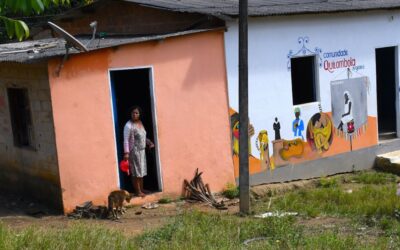Thank you chair, I am speaking on behalf of Biofuelwatch, EcoNexus, Timberwatch and other NGO members of the Global Forest Coalition.
There is now significant scientific evidence of direct and indirect negative impacts arising from expanding industrial tree monocultures, biofuel crops and other sources of industrial bioenergy. These impacts include the cultivation of invasive tree species, deforestation and forest degradation, the loss of grasslands, land grabbing, community displacement, increasing hunger and food shortages, whilst failing to reduce greenhouse gas emissions that cause climate change.
While the current text refers to “potential benefits to communities”, those are simply not evident. For Indigenous Peoples, local communities and especially rural women, industrial biofuel crops are a threat, with land grabs becoming ever more frequent.
According to a recent International Land Coalition report, land ‘transactions’ involving as much as 203 million hectares worldwide were concluded between 2000 and 2010, and two-thirds of these involved biofuel projects. According to Oxfam, the land grabbed in Africa until now could have fed 1 billion people, and an estimated 60% of this land grabbing was for biofuels.
We are disturbed that the current draft decision merely invites parties to use voluntary tools, such as standards and certification to resolve problems with biofuel crops. Such meagre measures will never counteract the perverse effects of biofuel targets and mandates, as the main negative impacts of biofuels are related to the large overall quantity of production, and the vast amounts of land and water required for this production. Qualitative standards are, per definition, of no use at all to counter these direct and indirect impacts.
Biofuel and bioenergy crops and plantations are emerging as a leading cause of biodiversity loss. The CBD cannot therefore confine itself merely to technical issues or meek measures. Rather, in line with Aichi Target 3 and the precautionary approach, the CBD must call for an immediate elimination of existing subsidies and other incentive schemes for industrial biofuels including mandates and targets, especially in Northern countries that import a significant part of their biofuels.
Lastly we support calls by countries like Switzerland for a precautionary approach to associated risky technologies, and, in this light, Bolivia’s call for a moratorium on synthetic biology.




